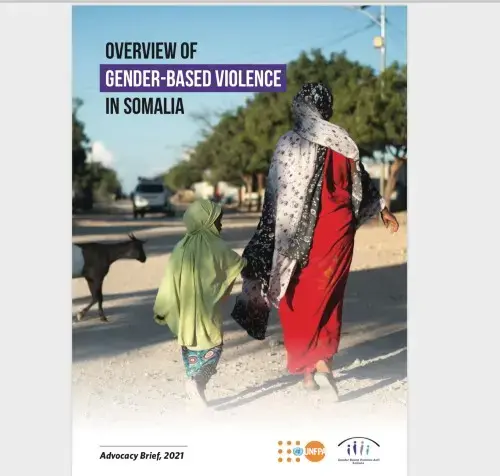2020 has been a year that witnessed an increase in incidents of gender-based violence against women and girls due to the restrictions imposed by the Government due to the COVID-19 pandemic in addition to the persistent communal conflicts, armed conflicts, and natural disasters including droughts and floods. Isolation, loss of livelihoods due to closure of business, disruptions in school calendars, and limitations of movement are associated with an increase in sexual violence, intimate partner violence and female genital mutilation among children, adolescent girls and women.
There were also reports of sexual violence against men and boys. Joint multisectoral assessments and media reports indicate a spike in levels of violence due to COVID-19-related restrictions. The closure of GBV service sites due to fear of COVID-19 infection and the unstable political situation created greater challenges for women and girls to access services. It became further challenging for women and girls in remote locations to access quality GBV services given their limited mobility and the closures of services in closest proximity to them.
The situation persisted especially with the lack of progress at the Federal Government level in passing the sexual offence legislation that provides some level of protection for vulnerable women and girls and detracts perpetrators from implementing GBV with impunity. Somaliland has not yet commenced the implementation of a sexual offences legislation passed in 2018. Puntland has made efforts to implement the sexual offences legislation. Furthermore, limited service provision for protective housing for vulnerable women and girls fleeing violence; limited availability of recreational spaces for women and girls to rebuild friendships and social capital; and a limited number of specialized service providers to provide specialized services are some of the major gaps that militated against access to services for women and girls in the year 2020.
Dilapidating poverty levels due to multiple displacements and loss of livelihoods, compounded by the COVID-19 pandemic, have resulted in more women and girls becoming dependent on cash and voucher assistance for meeting basic needs. 2021 comes with much hope and expectation from vulnerable women and girls for the improved programme, policy and legislative action for better protection from gender-based violence. Therefore, this document is produced with the aim of promoting advocacy and action against GBV by all humanitarian actors in Somalia. This is also a call to everyone including donors, Government, humanitarian and GBV actors for stronger partnerships and commitment to end violence against women and girls in Somalia.


